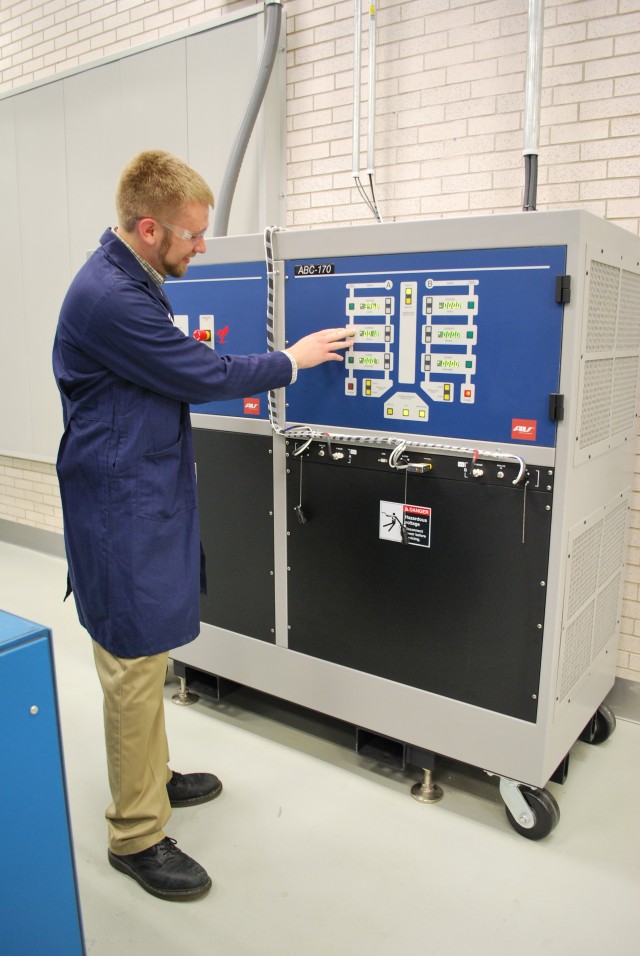
DETROIT ARSENAL, Mich (Army News Service, Aug. 3, 2009) -- The U.S. Army will lead the way in producing safer, more efficient and more high-powered ground vehicles in the future with the construction of the Department of Defense's Ground System Power and Energy Laboratory, or GSPEL.
The U.S. Army Tank Automotive Research, Development and Engineering Center in Warren, Mich., will host an official groundbreaking ceremony for the lab Aug. 17. Army, government and industry leaders are scheduled to be on hand for the event.
The GSPEL will be a one-of-a-kind research and testing laboratory complex. Eight different labs will be housed in the 30,000-square-foot facility and they are being designed as the cornerstone for the Army's next generation of power and energy initiatives. The facility will provide scientists and researchers with the ability to integrate hybrid-electric and fuel-cell technologies into advanced military vehicles.
TARDEC worked with the Southwest Research Institute, an independent, nonprofit applied research and development organization in San Antonio, Texas, to develop the demanding equipment and facility specifications necessary to make the GSPEL a reality.
One state-of-the-art piece of equipment to be installed in the GSPEL is AeroVironment's AV-800 Power Processing Unit. The unit, delivered to TARDEC in June, is the highest power-level power-processing unit in the United States. The AV-800 uses power from a grid to test batteries and vehicles, and is capable of returning energy back to the grid at more than 90-percent efficiency.
The amount of energy generated by the system makes it ideal for testing the Army's next-generation fleet of hybrid-electric manned and unmanned tactical vehicles, officials said. The unit is also used for assisting with the development of stationary devices, such as grid-connected batteries and fuel-cell systems by simulating application-specific load profiles.
As both the Army and the automotive industry look for ways to improve fuel efficiency and reduce energy consumption, TARDEC is working to be a leader in energy security and the development of hybrid-electric technology for ground vehicle systems.
"As the nation's laboratory for advanced military automotive technology, TARDEC is at the forefront of developing tomorrow's automotive solutions," said Michael Bissonette, AeroVironment's senior vice president and general manager of Efficient Energy Systems. "This new system will enable the development of high-powered electric automotive solutions, representing an important new capability for TARDEC and for the electric transportation industry."
(Bill Dowell serves with TARDEC Public Affairs, part of the U.S. Army Research, Development and Engineering Command.)

Social Sharing